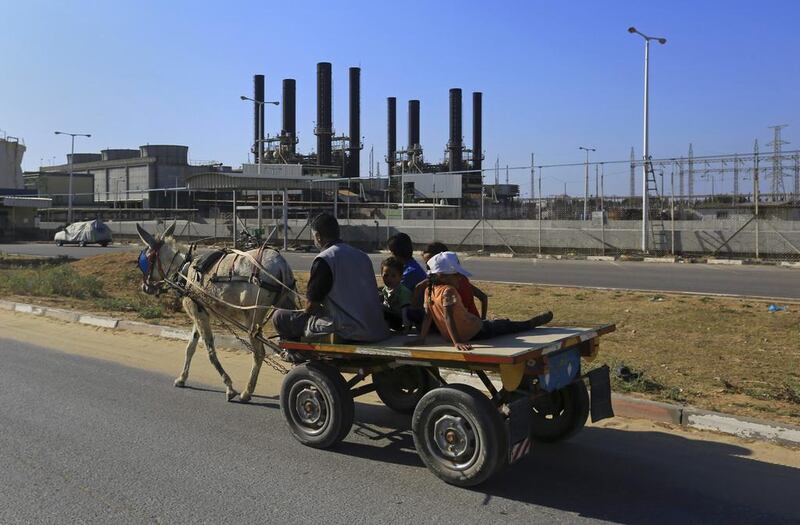BEIT LAHIYA, Gaza // Grim records mark the 10th anniversary of Hamas rule in Gaza — the longest-ever daily electricity and water cuts, 60 per cent youth unemployment, and a rising backlog of thousands waiting for a rare chance to exit the blockaded territory.
Unable to offer a remedy, the Islamist militant group has been indulging in oppression. It has jailed the few who dare to complain, including the young organisers of a street protest against power cuts and an author who wrote on Facebook that “life is only pleasant for Hamas leaders.”
Polls show almost half the people would leave altogether if they could, but that support for the group, despite three short, devastating wars with Israel, is steady at around a third.
For most of Gaza’s 2 million people, life is bound to get worse.
The international isolation of Hamas is likely to continue — and with it the border blockade imposed by Israel and Egypt after the group seized Gaza in June 2007.
A new political programme that Hamas hoped would mollify the West and Arab nations instead underscored its ideological rigidity; while softer in tone, the manifesto reaffirms a call to armed struggle and the creation of an Islamic state in Palestine, including what is now Israel.
Hamas also faces financial pressure by Palestinian President Mahmoud Abbas, whose forces it drove from Gaza a decade ago. Fed up with failed reconciliation efforts, the West Bank-based Mr Abbas has warned he would cut more Gaza subsidies, such as electricity payments.
Hamas spokesman Salah Bardaweel dismissed suggestions Hamas should step aside, but acknowledged a deal to improve Gaza’s lot is unlikely
A trio of unemployed friends in their 20s from the town of Beit Lahiya mobilised thousands in a rare street protest against chronic power cuts in January. They said they have been detained, beaten and repeatedly summoned to security compounds.
Activist Mohammed Al Taluli, 25, said pressure built again several weeks ago as daily power cuts worsened, with four hours of electricity followed by outages of 14 to 18 hours. Mr Al Taluli said he and his friends received death threats to deter them from protesting.
“People are asking us every day if we are planning a new demonstration,” Mr Al Taluli said. “But ... we are afraid.”
Over the past decade, Hamas has also executed 28 people, most of them alleged informers, after trials widely condemned as a sham. This includes three men executed last month, after a field tribunal tried them in less than a week.
The three had been accused of involvement in killing a Hamas leader, Mazen Faqha, in March.
Relatives of one of the three who were killed, 38-year-old Abdullah Al Nashar, said they believe he had indeed collaborated with Israel, lured by an Israeli exit permit from Gaza. But Al Nashar’s father, Ahmed, said his son had nothing to do with the Faqha killing and did not deserve to die.
Hamas’ rise to power was fuelled by frustration with corruption during the rule of Mr Abbas’ Fatah movement. Hamas also rejected Fatah’s attempt to negotiate Palestinian statehood on lands Israel captured in 1967, including Gaza.
In 2006, months after Israel’s unilateral withdrawal from Gaza, Hamas defeated Fatah in parliamentary elections. Subsequent failed attempts to negotiate a power-sharing deal and Hamas-Fatah street fighting culminated in the June 2007 Hamas takeover of Gaza.
Ahmed Al Nashar, 63, said he had voted for Hamas hoping “they would do something good in the name of religion,” but has concluded “there is no future here with these people.”
*Associated Press





